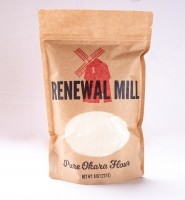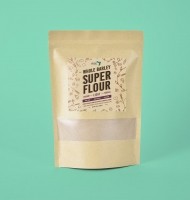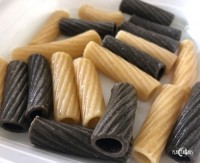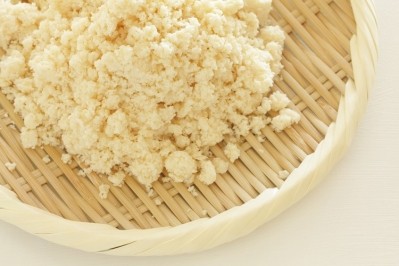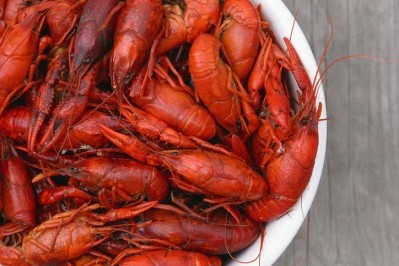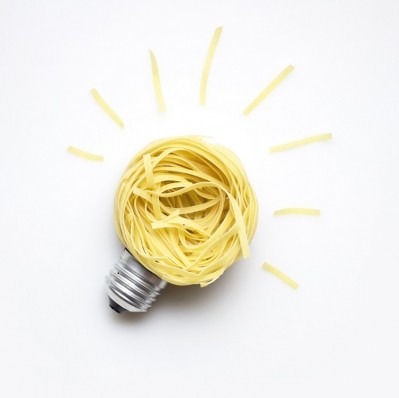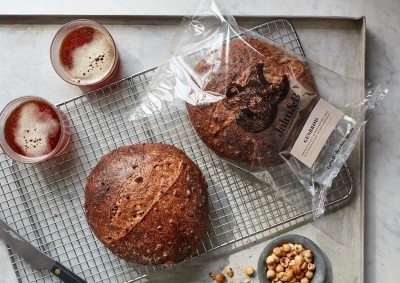Side-stream innovation: Rice, barley, and soy by-products take centre stage
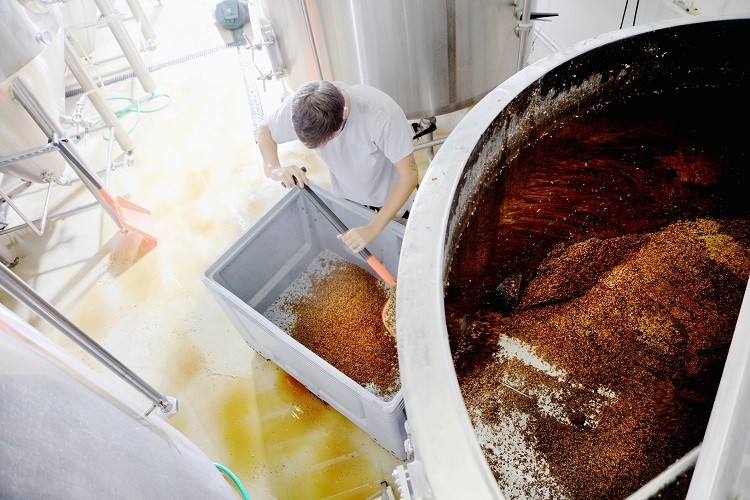
Roughly one third of food produced for human consumption is never eaten. This equates to around 1.3 billion tonnes, according to the United Nations Food and Agriculture Organization.
From an environmental standpoint, these figures are unsettling. The agri-food sector is one of the largest emitters of greenhouse gases, and if food waste were a country, it would be the third highest greenhouse gas emitter behind China and the US.
At the same time, the agri-food industry is under increased pressure to produce more food, from less. With global populations expected to rise to 9.8 billion by 2050, innovators in the sector are looking at ways of feeding growing numbers without sewing extra crops or occupying more land.
Food chain by-products, such as discarded seed husks and bean pulp, therefore present an opportunity for industry. Rather than dispose of by-products as waste, or use them to feed livestock, a number of start-ups are re-purposing these previously unwanted scraps into functional ingredients.
FoodNavigator spoke with a number of these innovators to learn about the latest developments in the side-stream sector, looking at by-products from the production of soymilk, beer, rice and sunflower oil.
Gluten-free flour from soymilk and tofu by-products
In soymilk and tofu production, soybeans are boiled and blended, and the liquid portion removed. This becomes the basis of the finished product. The remaining soybean pulp, or ‘okara’, is traditionally given to livestock as feed, or diverted to landfill.
In an effort to reduce waste, increase food production, save water and limit harmful emissions, California-based Renewall Mill has developed a method of dehydrating organic soybean pulp – otherwise known as okara.
The shelf-stable product is then ground in a high-protein, high-fibre flour for food applications.
“You can use it as a gluten-free flour. If you’re baking crackers, or something that is flat, you can use 100% okara in the place of normal flour,” Di Lamont, who heads up operations and logistics at Renewal Mill, told FoodNavigator.
“If you’re cooking something that will rise, like a cook or bread, we recommend a blend – either with other gluten-free flours, or with whole wheat flour,” she explained.
The start-up has used the flour to make a vegan, gluten-free, soft baked chocolate chip cookie, for example, which it is now selling in foodservice and retail.
Renewal Mill is the brainchild of Claire Schlemme, who after setting up the first organic juice company in Boston, Mother Juice, was shocked at the scale of fibre by-product producing in the juicing process. This prompted an increased interest in food waste at an industrial scale.
Renewal Mill was founded in 2016. The company has partnered with US tofu and soymilk manufacturer Hodo Foods to upcycle their US-grown soybean by-products into flour for wholesalers, food service outlets, and ingredients companies.
“Hodo is our biggest partner right now. We’re working pretty intensely with them, and we’re about to install our own technology in Hodo’s facility – that way everything will be able to be done in one go,” Lamont continued.
The firm is awaiting okara to be reviewed in accordance with the EU regulation on novel foods and novel food ingredients before launching in the European market.
In the meantime, research and development continues in a wide variety of applications, said Lamont. Prototypes include bread, crackers, pancakes, crispies, cheesy puffs, cereals, and pasta.
Adding value to brewers’ spent grain
Brewers’ spent grain is low-gluten, and high in fibre and protein, yet as the main by-product of the beer brewing industry, a whopping 42 million tonnes of spent barley is discarded worldwide every year.
New York-headquartered Rise Products is working with microbreweries to transform their spent grain into a nutritious flour. The milled grain can be used in a great number of applications, including brownies, cakes, bread, cookies, and pasta.
According to the start-up’s Abraham De La Rosa, the company’s patent-pending technology is accessible, efficient, and can be easily adapted to many organic by-products, including okara.
“We produce an all-natural ingredient,” De La Rosa told FoodNavigator when we caught up at Seeds and Chips in Milan. “That is a very distinctive aspect of our process. We don’t use any chemicals, it’s all mechanical.”
One of the biggest challenges is knowing how to use the spent grain flour, he continued. “It’s about educating customers on how to use it.” Rise has therefore observed greater uptake from restaurants and food manufacturers, which are more willing to experiment with new ingredients.
The flour’s nutrient profile – which includes 12 times the amount of fibre, twice as much protein, and one-third the amount of carbohydrates compared to all-purpose flour – also makes it an attractive ingredient for the food industry, he said.
Field-to-house: Rice husk architecture
Although not an ingredients supplier, Italian start-up RiceHouse is also repurposing food chain waste into functional products.
Italy boasts the largest rice production of all Member States, cultivating approximately 1.5 million metric tonnes per year. From field-to-house, RiceHouse leverages organic residues from Italy’s rice production to develop building materials.
The company considers its production method a new and responsible type of architecture, with its foundations in agriculture. “We have a big problem with construction. It is the main factor of environmental pollution to our planet,” RiceHouse co-founder Alessio Colombo told FoodNavigator. “We can’t continue to build with traditional materials, chemicals, and carbon.”
Colombo founded the company with CEO Tiziana Monterisi. The team commercialises the by-products of rice cultivation, such as rice straw and rice husks. “We mix these with lime and clay, to make building and construction materials,” Colombo continued, citing the start-up’s range of rice husk and natural hydraulic lime bio-plasters.
The products are highly effective in terms of energy consumption, he added. “They have good performance in terms of thermal and acoustic qualities. They’re good for energy-saving houses.”
Sunflower oil by-product makes high-protein ingredient
Ingredient start-up Planetarians is also upcycling by-products, using a unique technology that sterilizes, destroys anti-nutrients and functionalises fibre to do so.
“Our technology combines high-pressure processing (HPP) and ultra-high temperature (UHT) to sterilise ingredients,” Planetarians founder and CEO Aleh Manchuliantsau told FoodNavigator.
“I don’t care how dirty [the by-product] is. I don’t care how many days it was sitting [at a farm], I know it is sterile after the processing,” he added.
While the US-headquartered company can process a great number of by-products into functional ingredients, including cereal husks and vegetable peels, it has largely invested in defatted sunflower seeds, which it uses to manufacture its SunMeal ingredient.
SunMeal is allergen free, non-GMO, is a good source of fibre, and contains twice as much protein as upcycled brewers’ spent grains. SunMeal can be used in a vast array of applications, including in baked goods, alternative meats, and in pasta.
And according to Manchuliantasu, the product is five times cheaper than pea protein. “One of the advantages of upcycled ingredients is that they are affordable. You need to have low costs,” he explained.
“You can make protein affordable. Without using animals, and while reducing greenhouse emissions. We are fighting climate change with every bite!”
Interest is growing for Planetarians’ high-protein product. In March this year, the start-up closed a $750k seeds round to expand applications from up-cycled ingredients. Barilla Group’s BLU1877, Techstars, The Yield Lab, and Amadori were among the investors.
To further build its applications portfolio, the start-up has announced an Upcycled Ingredients Contest. Launched at Seeds and Chips earlier this month, the cook off calls for all chefs – whether professional or amateur – to produce the best recipe using Planetarians’ upcycled ingredients.
Prizes up for grabs include three days of R&D in KitchenTown’s, a cooking class organised by Barilla, and prototyping at Hermann’s Eatery. Winners will be chosen by a jury at Seeds and Chips 2020.
